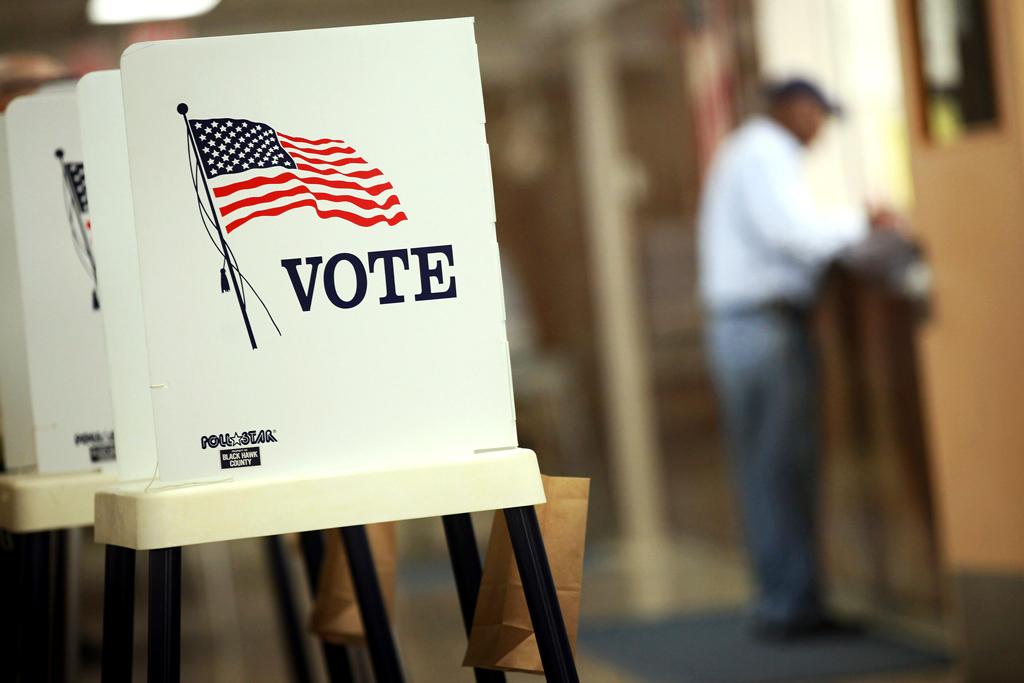Supreme Court strikes down Arizona’s voter registration law
Voting booths are set up for early voting at the Black Hawk County Courthouse on September 27, 2012 in Waterloo, Iowa. Early voting starts today in Iowa where in the 2008 election 36 percent of voters cast an early ballot.
The US Supreme Court has ruled that an Arizona state law that requires proof of US citizenship from people registering to vote in federal elections is illegal.
While federal law asks prospective voters for identification, it does not have to be a passport, birth certificate or other document that also proves citizenship, which many poor, elderly and Native American voters do not have. Voters affirm they are citizens by signing a statement.
Arizona’s Proposition 200, passed in 2004, requires state officials to reject voter registration forms that do not include proof of citizenship.
Justice Antonin Scalia, writing for the majority, said the 1993 National Voter Registration Act trumps Arizona state law because the law requires states to “accept and use” a federal form when registering voters, the New York Times reported.
The vote in the case, Arizona v. Inter Tribal Council of Arizona, No. 12-71, was 7-2, with Justices Clarence Thomas and Samuel Alito dissenting.
More from GlobalPost: Arizona’s prickly-pear politics
Every day, reporters and producers at The World are hard at work bringing you human-centered news from across the globe. But we can’t do it without you. We need your support to ensure we can continue this work for another year.
Make a gift today, and you’ll help us unlock a matching gift of $67,000!
